-
 Bitcoin
Bitcoin $104,091.2697
1.34% -
 Ethereum
Ethereum $2,609.5106
5.06% -
 Tether USDt
Tether USDt $1.0002
0.01% -
 XRP
XRP $2.5498
-1.52% -
 BNB
BNB $662.0257
-0.31% -
 Solana
Solana $178.1627
2.45% -
 USDC
USDC $1.0001
0.01% -
 Dogecoin
Dogecoin $0.2380
2.67% -
 Cardano
Cardano $0.8196
0.15% -
 TRON
TRON $0.2703
-2.02% -
 Sui
Sui $4.0155
1.48% -
 Chainlink
Chainlink $17.1206
2.06% -
 Avalanche
Avalanche $25.2885
1.95% -
 Stellar
Stellar $0.3122
-2.14% -
 Shiba Inu
Shiba Inu $0.0...01611
1.16% -
 Hedera
Hedera $0.2136
-3.37% -
 Hyperliquid
Hyperliquid $25.9877
6.46% -
 Pi
Pi $1.1887
2.04% -
 Toncoin
Toncoin $3.3802
-1.38% -
 Bitcoin Cash
Bitcoin Cash $408.2247
-1.15% -
 Polkadot
Polkadot $5.1312
-0.02% -
 UNUS SED LEO
UNUS SED LEO $8.6542
1.38% -
 Litecoin
Litecoin $101.9803
0.21% -
 Monero
Monero $341.4267
1.54% -
 Pepe
Pepe $0.0...01452
6.82% -
 Bitget Token
Bitget Token $4.7792
0.44% -
 Dai
Dai $1.0001
0.01% -
 Ethena USDe
Ethena USDe $1.0010
0.02% -
 Uniswap
Uniswap $7.0124
1.99% -
 Bittensor
Bittensor $460.1563
1.83%
Do cryptocurrency wallets require real-name authentication?
Crypto wallet KYC requirements vary; large exchanges mandate it for compliance, while cold and decentralized wallets often don't, though interactions with regulated services might.
Feb 28, 2025 at 01:53 pm
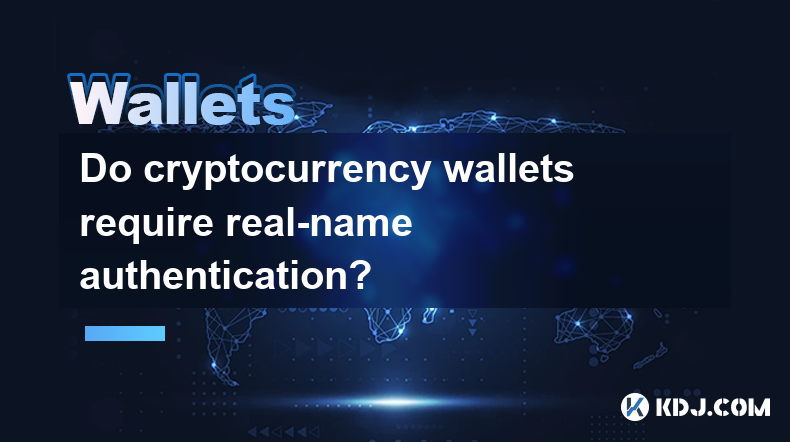
Hot wallet
Hot wallets for large compliance platforms, such as Binance, Huobi, etc., usually require real-name authentication. Such platforms are subject to regulation and must comply with anti-money laundering (AML) and Know Your Customer (KYC) regulations. Through real-name authentication, the platform can verify user identity, reduce the risk of illegal activities such as money laundering and fraud, and ensure the security of the transaction environment.
Small independent hot wallets, some do not require real-name authentication. They may be in a regulatory gray area, or there is no real-name threshold to attract users who pursue anonymity. However, when using such wallets, users need to be vigilant about their security and legality. Due to the lack of supervision, it is difficult to ensure the security of funds.
Cold wallet
Cold wallets generally do not require real-name authentication. Cold wallets are mainly used to store private keys offline, such as hardware wallets, paper wallets, etc. They do not rely on network connections. Users control their private keys themselves. They have little connection with third-party platforms and do not need to follow the platform's real-name requirements, which can better protect user privacy.
If a cold wallet is purchased through a centralized exchange, or withdraws coins from the cold wallet through the exchange, the exchange may require KYC. This is the exchange's own compliance needs, not the cold wallet itself.
Decentralized wallet
Decentralized wallets are based on blockchain technology, emphasizing that users control their assets independently, and most of them do not require real-name authentication. When a user creates a wallet, he only generates the wallet address and private key, and does not need to provide personal identity information, which is in line with the concept of anonymity and decentralization of cryptocurrencies.
Real-name authentication may be required when decentralized wallets interact with certain services or platforms that require compliance. For example, if the exchange is regulated, the user may be required to have a real name for compliance.
The importance of real-name authentication
Compliance needs : Many countries and regions have strengthened supervision of cryptocurrency transactions and require wallet service providers to implement real-name authentication. The Financial Crime Enforcement Network (FinCEN) requires virtual currency exchanges and wallet providers to comply with the "Know Your Customer" policy and users are required to provide identity information.
Ensure transaction security : Real-name authentication can reduce false accounts and fraud, allowing regulators to track the flow of funds, reduce illegal activities, and protect the safety of users' funds. For example, after the platform reviews the user's identity, abnormal transactions can be discovered and blocked in a timely manner.
Enhance trust : In the cryptocurrency market, users’ trust in the platform is crucial. Real-name authentication can improve the transparency and credibility of the platform, attract more investors, and promote the healthy development of the market.
Risk of not real-name authentication
Legal risks : In some areas where cryptocurrency transactions are clearly required to be real-named, using a wallet to trade without real-name may violate local laws and face legal sanctions.
Fund security risks : Anonymous wallets lack supervision and are easily used by criminals for illegal activities, such as money laundering, fraud, etc. Once a security breach occurs in a wallet service provider, it is difficult for user funds to be effectively protected.
Transaction restrictions : Without real-name authentication, certain functions may not be able to be used, such as large-value transactions, fiat currency recharge and withdrawal, etc. Some platforms only offer specific services to real-name users to control risks.
Disclaimer:info@kdj.com
The information provided is not trading advice. kdj.com does not assume any responsibility for any investments made based on the information provided in this article. Cryptocurrencies are highly volatile and it is highly recommended that you invest with caution after thorough research!
If you believe that the content used on this website infringes your copyright, please contact us immediately (info@kdj.com) and we will delete it promptly.
- Pi Network (PI) token price dropped on Tuesday as the recent comeback took a breather
- 2025-05-14 02:05:13
- Web3 Browser Brave Integrates Cardano Blockchain into Its Native and Standalone Wallet Apps
- 2025-05-14 02:05:13
- KAITO (KAITO) Reclaims $2 Mark, Targeting New All-Time Highs
- 2025-05-14 02:00:23
- VanEck Launches VBILL Tokenized Fund on Solana, Ethereum, BNB Chain, and Avalanche
- 2025-05-14 02:00:23
- CPI Fell to 2.3% in April, Slightly Below Economists' Expectations
- 2025-05-14 01:55:13
- Anthony Scaramucci Shares Bold Bitcoin Prediction and ETF Outlook
- 2025-05-14 01:55:13
Related knowledge
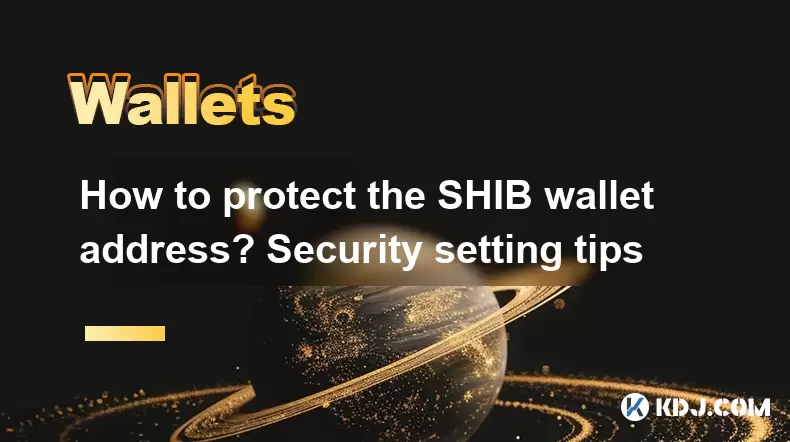
How to protect the SHIB wallet address? Security setting tips
May 13,2025 at 04:07pm
Protecting your SHIB wallet address is crucial to safeguarding your cryptocurrency assets. With the rise of digital currencies, securing your wallet has become more important than ever. This article will provide you with detailed security setting tips to ensure your SHIB wallet remains safe from potential threats. Understanding SHIB Wallet SecurityBefor...
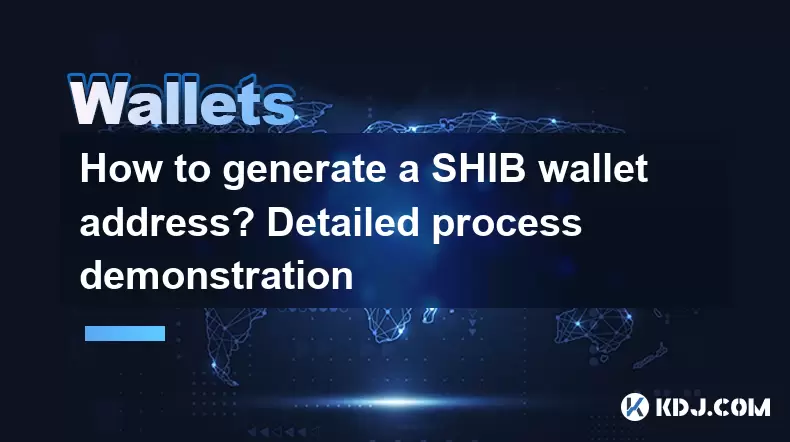
How to generate a SHIB wallet address? Detailed process demonstration
May 13,2025 at 08:43pm
Creating a SHIB (Shiba Inu) wallet address is a straightforward process that allows you to securely store, send, and receive SHIB tokens. This article will guide you through the detailed steps to generate a SHIB wallet address using popular methods such as MetaMask and Trust Wallet. Let's dive into the process. Choosing a Wallet PlatformBefore you can g...
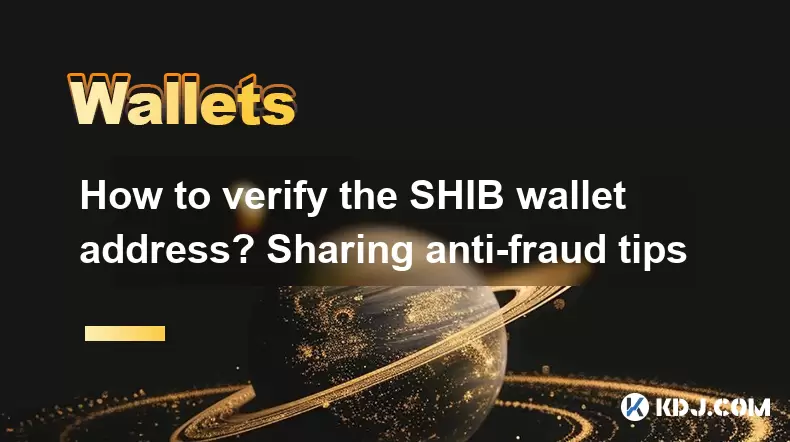
How to verify the SHIB wallet address? Sharing anti-fraud tips
May 13,2025 at 08:56pm
Verifying a SHIB (Shiba Inu) wallet address and protecting yourself from fraud are crucial steps in managing your cryptocurrency safely. This article will guide you through the process of verifying your SHIB wallet address and share essential anti-fraud tips to ensure your digital assets remain secure. Understanding SHIB Wallet AddressesBefore diving in...
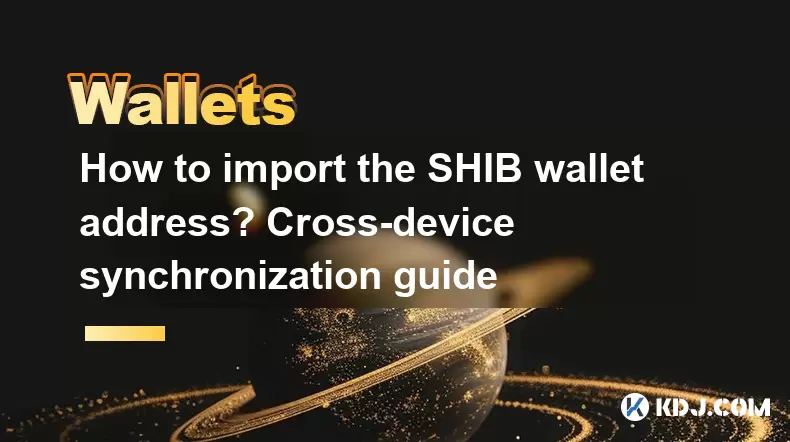
How to import the SHIB wallet address? Cross-device synchronization guide
May 13,2025 at 03:43pm
How to Import the SHIB Wallet Address? Cross-Device Synchronization Guide Managing your SHIB wallet across multiple devices can be a seamless process if you understand how to properly import your wallet address and synchronize it across devices. This guide will walk you through the steps to import your SHIB wallet address and ensure it is synchronized a...
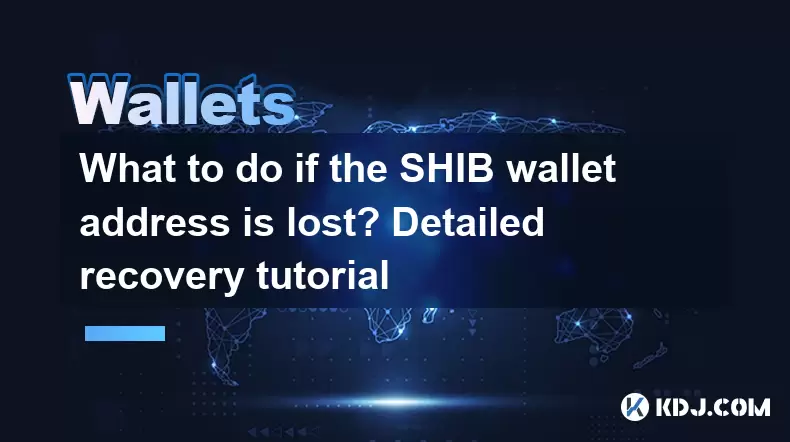
What to do if the SHIB wallet address is lost? Detailed recovery tutorial
May 14,2025 at 01:00am
Losing your SHIB wallet address can be a stressful experience, especially if you have a significant amount of cryptocurrency stored in it. However, there are several steps you can take to recover your SHIB wallet address and regain access to your funds. This detailed recovery tutorial will guide you through the process, ensuring you can take the right a...
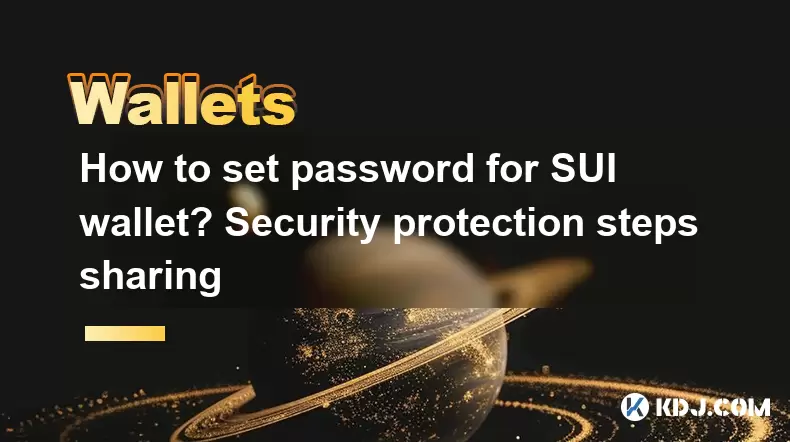
How to set password for SUI wallet? Security protection steps sharing
May 13,2025 at 02:21pm
Setting a password for your SUI wallet is a crucial step in securing your digital assets. This article will guide you through the process of setting a password and share additional security protection steps to ensure the safety of your SUI wallet. Understanding the Importance of a Strong PasswordBefore diving into the steps, it's essential to understand...

How to protect the SHIB wallet address? Security setting tips
May 13,2025 at 04:07pm
Protecting your SHIB wallet address is crucial to safeguarding your cryptocurrency assets. With the rise of digital currencies, securing your wallet has become more important than ever. This article will provide you with detailed security setting tips to ensure your SHIB wallet remains safe from potential threats. Understanding SHIB Wallet SecurityBefor...

How to generate a SHIB wallet address? Detailed process demonstration
May 13,2025 at 08:43pm
Creating a SHIB (Shiba Inu) wallet address is a straightforward process that allows you to securely store, send, and receive SHIB tokens. This article will guide you through the detailed steps to generate a SHIB wallet address using popular methods such as MetaMask and Trust Wallet. Let's dive into the process. Choosing a Wallet PlatformBefore you can g...

How to verify the SHIB wallet address? Sharing anti-fraud tips
May 13,2025 at 08:56pm
Verifying a SHIB (Shiba Inu) wallet address and protecting yourself from fraud are crucial steps in managing your cryptocurrency safely. This article will guide you through the process of verifying your SHIB wallet address and share essential anti-fraud tips to ensure your digital assets remain secure. Understanding SHIB Wallet AddressesBefore diving in...

How to import the SHIB wallet address? Cross-device synchronization guide
May 13,2025 at 03:43pm
How to Import the SHIB Wallet Address? Cross-Device Synchronization Guide Managing your SHIB wallet across multiple devices can be a seamless process if you understand how to properly import your wallet address and synchronize it across devices. This guide will walk you through the steps to import your SHIB wallet address and ensure it is synchronized a...

What to do if the SHIB wallet address is lost? Detailed recovery tutorial
May 14,2025 at 01:00am
Losing your SHIB wallet address can be a stressful experience, especially if you have a significant amount of cryptocurrency stored in it. However, there are several steps you can take to recover your SHIB wallet address and regain access to your funds. This detailed recovery tutorial will guide you through the process, ensuring you can take the right a...

How to set password for SUI wallet? Security protection steps sharing
May 13,2025 at 02:21pm
Setting a password for your SUI wallet is a crucial step in securing your digital assets. This article will guide you through the process of setting a password and share additional security protection steps to ensure the safety of your SUI wallet. Understanding the Importance of a Strong PasswordBefore diving into the steps, it's essential to understand...
See all articles






















































































